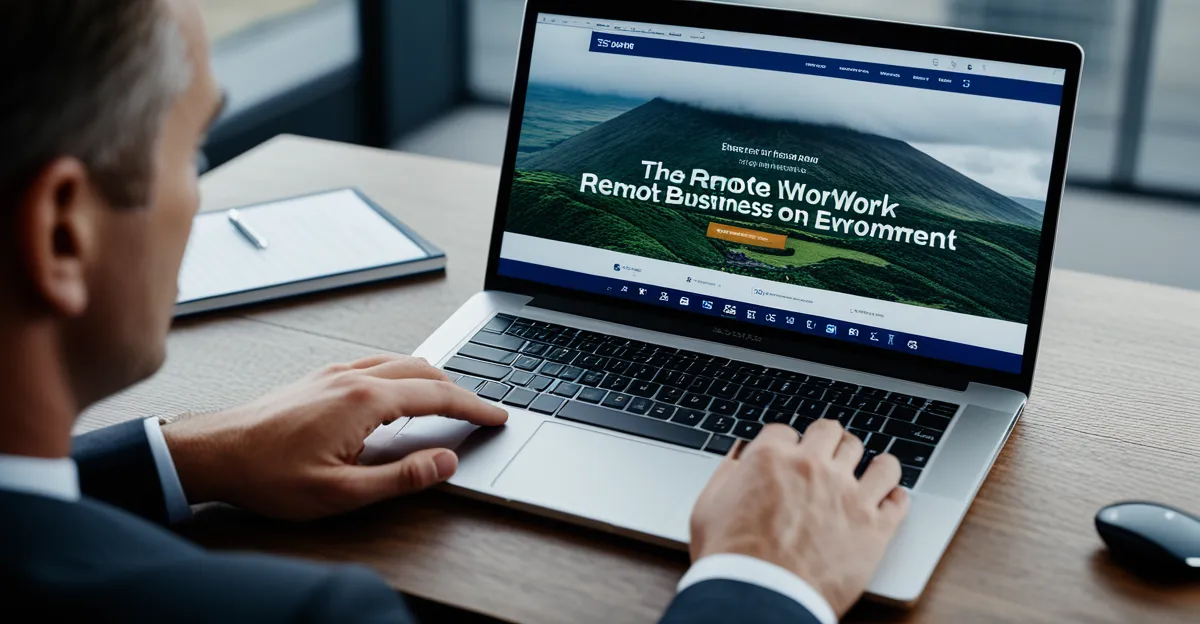Remote Work as a Catalyst for Change in UK Business Culture
Remote work UK surged as a necessity during the pandemic, rapidly transforming the business culture UK had known for decades. The abrupt shift compelled companies across sectors to adapt, moving from traditional office-centric environments to flexible, home-based setups. This change marked a pivotal moment in the post-pandemic workplace, along with evolving values around trust, autonomy, and work-life integration.
Initially, many UK businesses approached remote work with caution, concerned about productivity and communication challenges. However, widespread adoption soon showcased benefits that reshaped workplace norms. Employees gained autonomy over their schedules, while organisations began shifting focus from hours worked to output achieved, embedding flexibility into their cultures. The post-pandemic workplace now frequently blends remote and in-office work, prompting reexamination of office usage and collaboration methods.
Also read : How Are UK Businesses Adapting to Technological Advancements?
This catalyst sparked significant shifts, such as enhanced digital reliance and more inclusive management styles. While some traditionalists resisted, the overwhelming consensus points to remote work as an accelerating agent in business culture UK evolution—challenging old paradigms and fostering innovation and resilience in an unpredictable environment.
Evolution of Workplace Communication and Collaboration
Remote work UK propelled a rapid digital transformation in workplace communication UK. Companies embraced an array of collaboration tools such as video conferencing, instant messaging, and cloud-based platforms to maintain workflow continuity. These tools became crucial in replicating in-person interactions, fostering team cohesion despite physical separation.
Also to see : What strategies can UK SMEs use to increase their market share?
This shift impacted team dynamics, transitioning from synchronous, face-to-face meetings to more flexible, asynchronous communication styles. Employees gained greater control over when and how they contributed, encouraging diverse participation and often increasing productivity. However, adjusting to new communication norms required deliberate efforts to avoid misunderstandings and maintain engagement.
Prominent UK firms exemplify this evolution; for instance, major financial institutions integrated comprehensive digital suites to streamline cross-department collaboration, while technology companies leveraged agile tools to support innovation remotely. This widespread adoption has cemented the role of technology in the UK’s business culture, making remote and hybrid models not just viable but often preferred in the post-pandemic workplace. The ongoing challenge lies in balancing efficiency with maintaining genuine human connection through digital channels.
Impact on Employee Engagement and Wellbeing
Remote work wellbeing has become a central concern as companies adjust to new work models. In the remote work UK context, shifts in employee engagement UK are evident, with many workers reporting improved satisfaction due to increased flexibility. Flexible work benefits like autonomy over schedules contribute to better work-life balance, reducing stress and burnout risks.
However, remote arrangements also introduce challenges. Feelings of isolation and blurred boundaries between work and home life can affect mental health. UK businesses recognise these risks and have adopted targeted HR strategies to support wellbeing. For example, frequent virtual check-ins, wellness programmes, and mental health resources are increasingly common.
Understanding employee engagement UK in remote work settings involves looking at motivation and connection. While some thrive with self-directed routines, others may struggle without in-person social interaction. Companies proactively tailor engagement strategies, mixing synchronous and asynchronous communication to foster involvement and inclusivity.
In summary, despite challenges, remote work wellbeing is a growing priority that shapes how UK businesses nurture talent and maintain productivity in the post-pandemic workplace. Responding with thoughtful HR approaches ensures that engagement remains strong as work models continue evolving.
Shifts in Management Styles and Leadership Approaches
Remote work UK has driven a profound shift in management styles UK, moving away from traditional supervision toward outcome-based and trust-driven leadership. Businesses now prioritise results over monitoring hours, recognising that autonomy fosters productivity and engagement in the post-pandemic workplace. This shift requires managers to develop new skills to support and motivate dispersed teams effectively.
Training and support for remote leadership have become integral in UK companies. Organisations invest in leadership development programmes that emphasise communication, empathy, and digital proficiency to bridge the physical gap between managers and employees. These initiatives enhance managers’ abilities to maintain accountability while nurturing trust and collaboration remotely.
The impact on manager-employee relationships is significant. Remote work wellbeing benefits from leaders who balance performance expectations with personal support, recognising isolation risks and mental health needs. UK firms increasingly adopt flexible check-ins and transparent feedback mechanisms to sustain connection and motivation within hybrid and remote teams.
Overall, the evolution in management styles UK underlines how leadership must adapt strategically to embed trust, flexibility, and responsiveness—core pillars in the changing business culture UK landscape.
Benefits and Challenges of Remote Work for UK Businesses
Remote work benefits UK companies by expanding talent pools beyond geographic limits, enabling access to diverse skills. Cost savings on office space and utilities also boost business productivity UK, making remote arrangements economically attractive. Environmental advantages arise from reduced commuting, aligning with corporate sustainability goals, further elevating remote work benefits UK.
However, remote work challenges persist. Communication gaps can arise despite collaboration tools, potentially impacting clarity and responsiveness. Maintaining team cohesion remains difficult without physical presence, sometimes hindering spontaneous brainstorming or informal bonding. These remote work challenges require deliberate strategies to ensure team alignment and culture retention.
Sector-specific perspectives reveal variation: technology firms often adapt quickly due to digital readiness, whereas manufacturing and retail face greater hurdles integrating remote work fully. Statistical insights confirm mixed productivity outcomes, dependent on role type and organisational support.
In sum, while remote work benefits UK organisations substantially, recognising and addressing remote work challenges is crucial to sustaining long-term success and fostering resilient business productivity UK in evolving workplace landscapes.
Transformation of Company Values and Organisational Identity
Remote work UK has prompted a fundamental redefinition of company values UK, compelling organisations to reshape their organisational culture remote work models. Many UK firms now prioritise inclusivity, diversity, and transparency as core elements of their evolving business identity. This shift reflects a broader recognition that sustaining engagement and collaboration in hybrid settings requires more than technology; it demands shared values that resonate across dispersed teams.
Transparency initiatives often include open communication channels and visible decision-making processes, fostering trust despite physical distance. Emphasising inclusivity means actively ensuring all employee voices are heard, regardless of location or role, which enriches innovation and engagement. Diversity efforts have expanded beyond recruitment, integrating cultural sensitivity into daily operations and leadership development.
Examples of UK organisations undergoing culture reshaping illustrate practical approaches. Some have launched internal branding campaigns highlighting flexibility and wellbeing, while others revise mission statements to reflect remote work realities. This transformation underscores how adapting company values UK is essential for aligning a dispersed workforce and reinforcing a cohesive business identity in the post-pandemic workplace.











